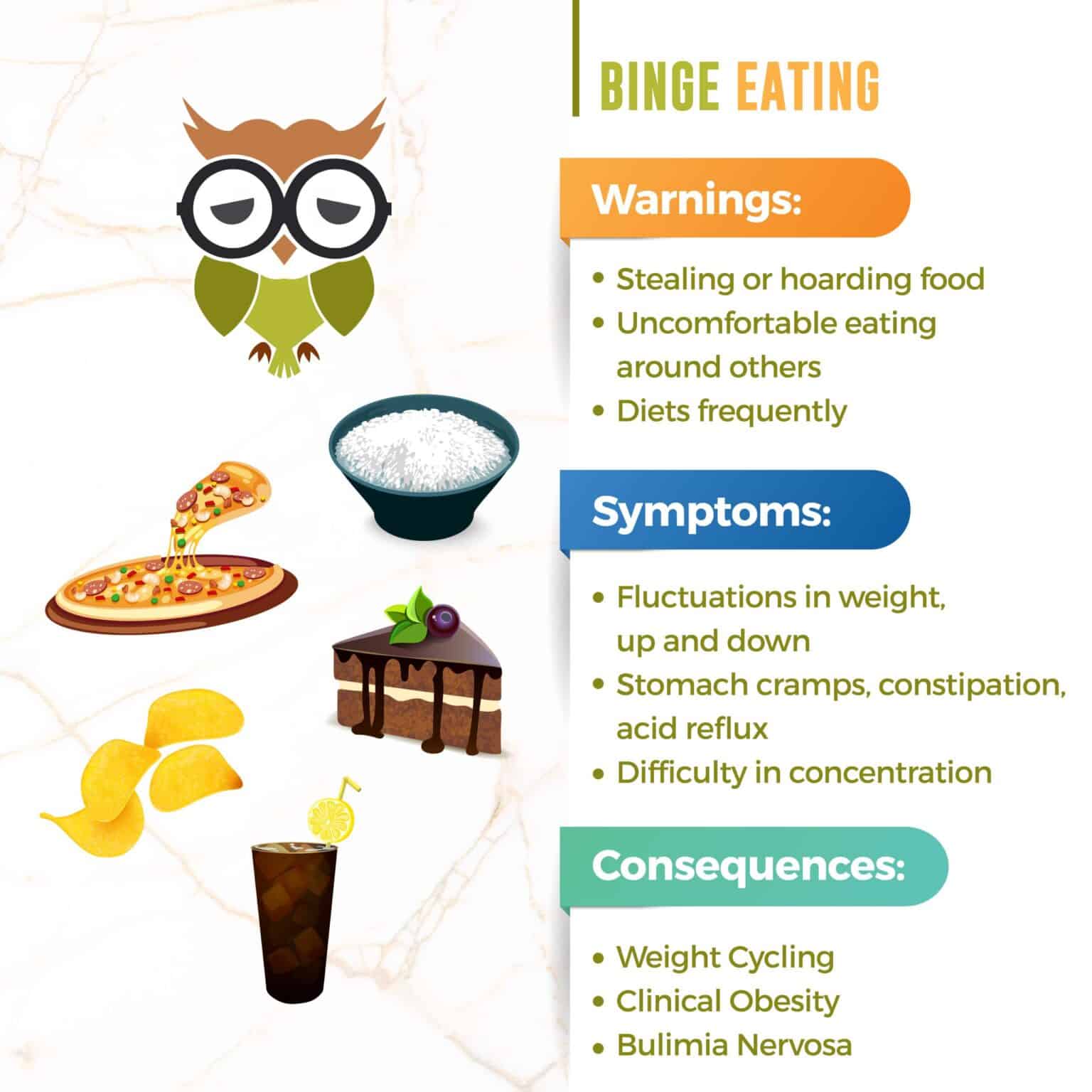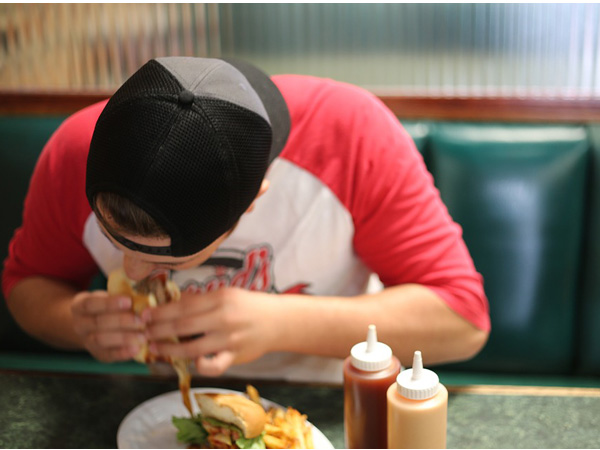BINGE EATING DISORDER
Binge eating disorder is an officially recognized eating disorder and it affects people all over the world. People who binge eat often consume a large quantity of food in a short period and feel very guilty afterwards. They can’t control themselves even if they are not hungry anymore.
Unlike bulimia such people don’t throw up or exercise after binge-eating. These types of eating disorders are a coping mechanism to deal with problems in their lives like anxiety & depression.
A psychiatrist can help with binge eating disorder.

SYMPTOMS OF BINGE EATING DISORDER
- Eating even if you feel full
- Eating a large amount of food in one sitting
- Eating even when you’re not hungry
- Eating when you’re feeling anxious
- Feeling guilty or disgusted after eating
- A sense of relief during the binge eating period
- Eating secretly or alone
- Dieting often
- For a psychiatrist to diagnose BED in a patient, you must have three or more symptoms from the list given above.
- Man with Binge eating disorder
CAUSES OF BINGE EATING DISORDER
Binge-eating disorder occurs mostly because patients don’t know how to deal with their emotions and issues.
- Genetics – You may be susceptible to binge eating disorder if your family has a history of it.
- Gender – It affects women more than men. This is mainly due to biological factors.
- Changes in the brain – These patients have an altered brain structure making them lose control of their appetite.
- Body size – These patients are extremely obese and become so because of the disorder.
- Body image – These patients are dissatisfied with the way their body looks. This results in dieting which leads to cravings, overeating, and ultimately guilt.
- Binge eating – This illness begins in childhood and teenage.
- Emotional trauma – Any kind of bullying and abuse or major event can lead to binge eating disorder.
- Other mental illnesses – Comorbid conditions like depression, PTSD, Bipolar Disorder, phobias & Anxiety can cause binge eating disorder.
DIAGNOSIS OF BINGE EATING DISORDER
BED starts as a coping mechanism in response to trauma. It can last for years if these patients don’t receive help from psychologists.
To be diagnosed for binge eating disorder, a patient must binge eat at least once a week for at least 3 months.
The most important characteristic of binge eating disorder is that patients don’t vomit, take laxatives or over-exercise to counter the effects of the binge episode.

TREATMENTS FOR BINGE EATING DISORDER
The treatments for binge eating disorder depend on the severity of your BED. The best treatments for binge eating disorder are –
Cognitive behavioural therapy – It focuses on improving your behavior and relationship with food. It helps you monitor your negative emotions, body image issues, and teaches you healthy coping mechanisms.
Interpersonal Psychotherapy – It helps you acknowledge your thought patterns which lead to binge eating episodes. It helps you develop better coping mechanisms to deal with life’s issues.
Dialectical behaviour therapy – It teaches you to regulate your emotions in a healthier way. Mindfulness, distress tolerance, regulation of emotions, and improvement of interpersonal skills are the things focused on in DBT.
Weight loss therapy – It focuses on medical weight loss and improving body image and self-esteem.
Medications – Vyvanse (lisdexamfetamine) and topiramate are common medications used to treat BED. It helps in controlling your appetite, depression and OCD-like tendencies.
If you or anyone you know is suffering from uncontrollable binge eating episodes, you need professional help & support.
Call 469-545-9983 to book an appointment with our expert psychologist, Dr. Seema Kazi.
